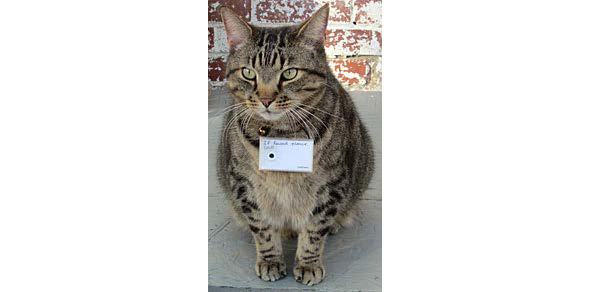Photo from an online application form Nico Dauphine was (until Tuesday) using to hire field assistants, whose duties include “assist[ing] citizen participants in deploying miniature collar-mounted cameras on their free-roaming pet domestic cats.”
Tuesday, while animal welfare organizations across the country were issuing statements condemning the alleged cruelty and urging justice in the case, Nico Dauphine’s employer was expressing a rather remarkable lack of concern.
Scott Giacoppo, Vice President External Affairs & Chief Programs Officer for the Washington Humane Society, questioned whether Dauphine should remain employed by the National Zoo in the event she’s convicted.
“If she did do this,” Giacoppo told ABC News, “then we naturally would be concerned about her being around all animals. Whoever would do such a thing is a threat to all animals. It is a slow and painful death. It was callous and complete disregard for animals’ well being.”
According to ABC News, evidence in the case is the result of WHS’s “month-long investigation monitoring video surveillance and matching card swipes in and out of an apartment complex near the scene of the alleged crime.”
The Humane Society of the United States [not affiliated with WHS] issued a statement “applaud[ing] the Washington Humane Society for its investigation” and “urg[ing] full prosecution by the U.S. Attorney’s Office if warranted.”
Alley Cat Allies president Becky Robinson called the story “troubling.” “Intentionally killing cats is illegal and cruel. Criminal charges in this case are appropriate and necessary.”
“Alley Cat Rescue vehemently disagrees with keeping Dauphine in her current position at the National Zoo,” reads a statement posted on the organization’s blog. “[ACR] believes she should be removed until an investigation into these allegations of animal cruelty has been completed.” ACR has started a petition aimed at getting Dauphine removed.
Meanwhile, a spokesperson for the National Zoo, which oversees the Smithsonian’s Migratory Bird Center—where Dauphine works with her advisor, Peter Marra—was trying to play down the fact that one of its researchers is charged with attempted animal cruelty.
Pamela Baker-Masson, associate director of communications, told ABC News: “We know what she’s doing would in no way jeopardize our animal collection at the National Zoo or jeopardize wildlife, so we feel perfectly comfortable that she continue her research.”
Which begs the question: Does Baker-Masson actually know what Dauphine’s research is?
As I indicated Monday, when this story broke, Dauphine’s “current project examines predator-prey dynamics in an urban matrix in collaboration with citizen scientists at Neighborhood Nestwatch.”
The predators, in this case, are (not surprisingly) house cats. And, according to an online application form (which mysteriously disappeared from the Smithsonian’s Website Tuesday) she’s been using to recruit field assistants, Dauphine is asking participants to put cameras on their cats—thus allowing her team to monitor the cats’ every move.
Granted, Dauphine’s yet to have her day in court, but still—at this point, who in their right mind would allow their cat to participate in any study sponsored by the Migratory Bird Center.

